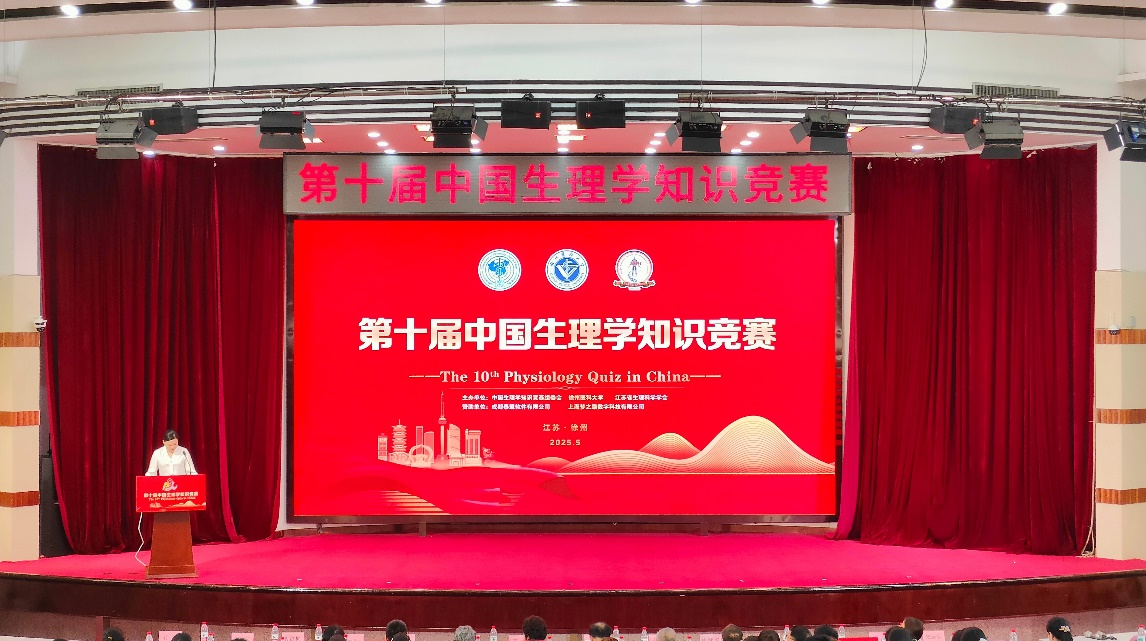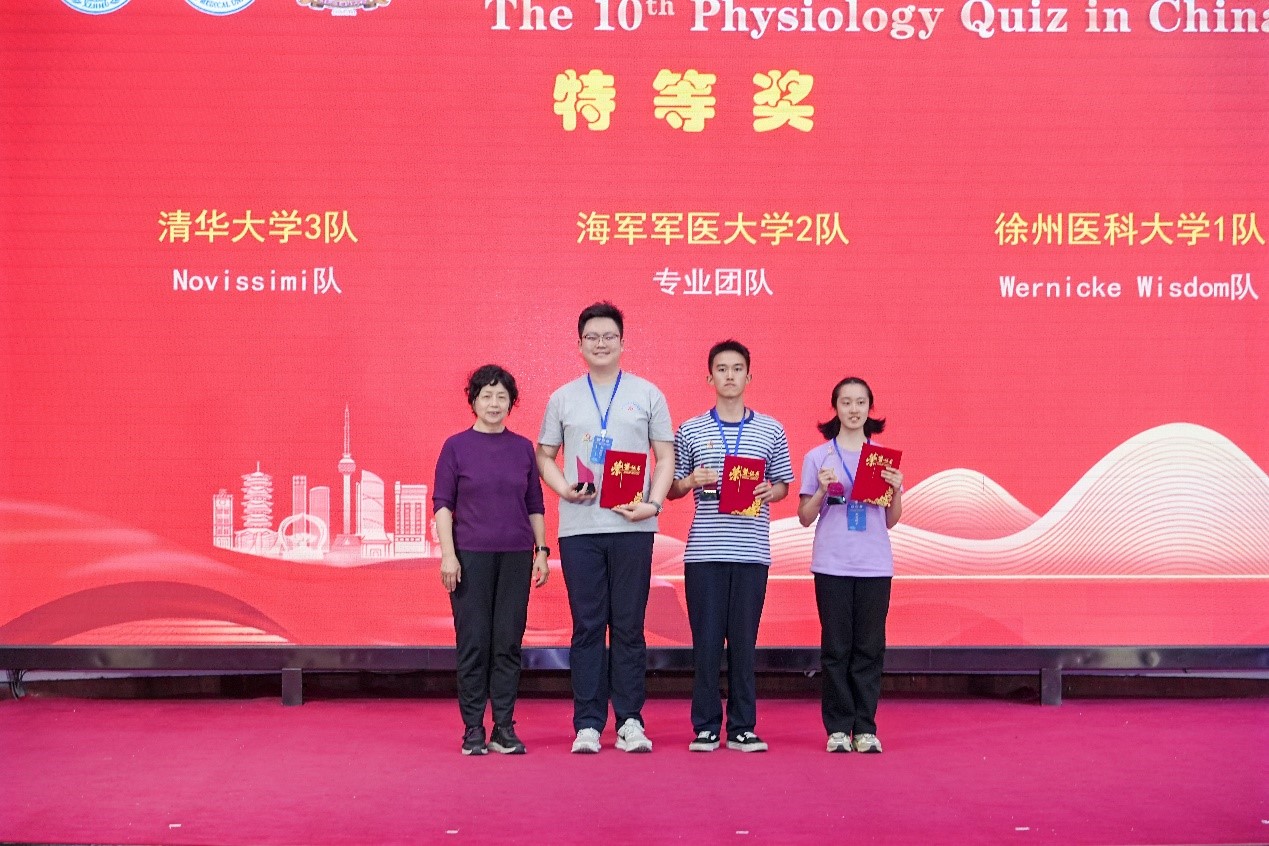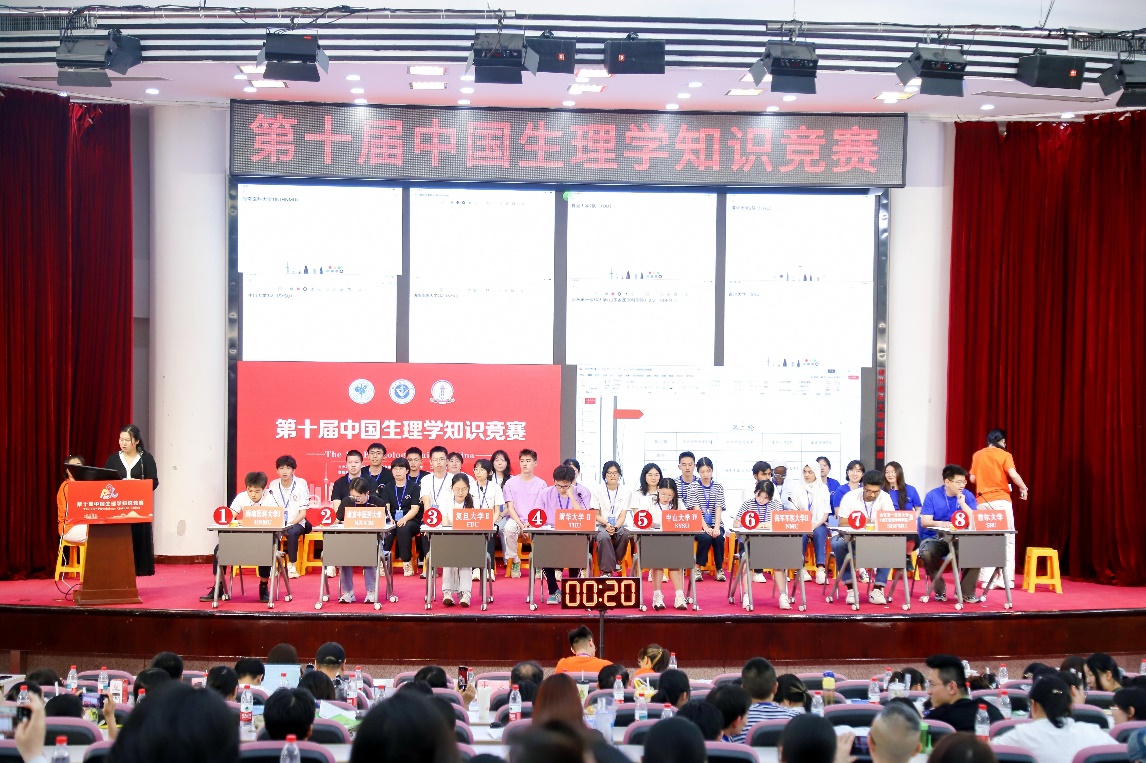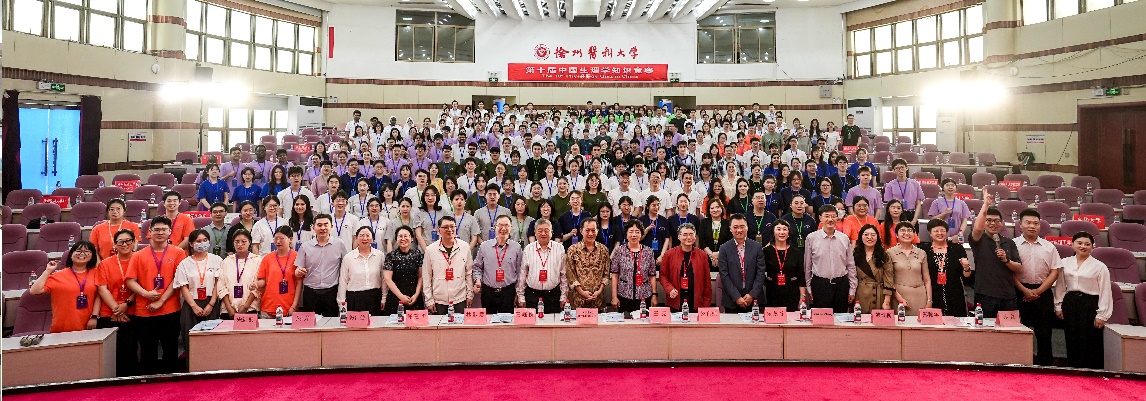From May 17th to 18th, the final of the 10th Physiology Quiz in China kicked off at Xuzhou Medical University. As one of the most influential events in the field of physiology in China, this quiz attracted nearly 3,000 students from more than 100 domestic and foreign universities, including Tsinghua University, Fudan University, Sun Yat-sen University, and Seoul National University. Professor Zheng Junnian, Deputy Secretary of the University Party Committee and President, Professor Cheng Hwee Ming from the University of Malaya (the initiator of the International Physiology Quiz), nearly 20 experts from domestic and foreign institutions such as Peking University, Sun Yat-sen University, Central South University, and Seoul National University, and the leadership team of the School of Basic Medicine attended the opening ceremony.
Guided by the core philosophy of "Using Quiz as a Bridge, Promoting Education through Quiz, Encouraging Learning via Quiz, and Advancing Together Hand in Hand," the event covered physiological theory, clinical thinking, and international academic frontiers. It aimed to build a high-quality platform for peers in the national physiological community and talent cultivation in medical colleges, fostering new-era medical talents with solid theoretical foundations and outstanding innovative capabilities.
At the opening ceremony, Zheng Junnian delivered a warm welcome speech, noting that the quiz plays a crucial role in inspiring young students' enthusiasm for exploring medical mysteries and promoting academic exchanges among institutions. Professor Cheng Hwee Ming extended congratulations, fully affirming the quiz's standards. Professor Lin Mojun, Vice President of the Chinese Physiological Society and Director of the Education Working Committee, and Professor Zhu Jingning, President of the Jiangsu Society for Physiological Sciences, both stated that the quiz significantly promotes physiology teaching and medical talent cultivation and will continue to receive strong support.
This quiz highlighted innovation in several ways: For the first time, it adopted a combination of online preliminary rounds and offline finals, enabling more students to participate and making the quiz more challenging and intense. It first invited foreign universities to compete, linking top institutions and initiating "borderless" dialogues. It presented questions in various forms, such as images and videos, enhancing the quiz's fun and appeal.
The quiz adopted a dual-track model for undergraduate and higher vocational colleges to meet the training needs of medical talents at different levels. The undergraduate track final featured five rounds of elimination, with champions, runners-up, and second runners-up eventually determined. The higher vocational track emphasized the integration of practice and theory through three rounds of quiz. The event was broadcast live globally, with nearly 10,000 people watching online. Our university dispatched four teams, consisting of students from the First Clinical Medical College, Second Clinical Medical College, School of Anesthesiology, School of International Education, and School of Stomatology. After fierce quiz, the team from our university—comprising Kong Ziyu, Wang Jinping, PRAKRITI KAUR, Chen Jun, and Zhong Junhe—withstood the pressure in the peak showdown against numerous elites, responded calmly, and won the third place. The teams from Tsinghua University and the Naval Medical University won the first and second prizes, respectively.
During the quiz, a seminar themed "Challenges and Countermeasures in Basic Medical Education" was simultaneously held, focusing on innovations and challenges in medical education in the AI era. Top domestic and foreign experts were invited to share teaching experiences and explore new paths for medical education. Professors Wang Xian (Peking University), Luo Ziqiang (Central South University), Wang Tinghuai (Sun Yat-sen University), Gao Xingya (Nanjing Medical University), and Zhu Jingning (Nanjing University) delivered keynote speeches, discussing cutting-edge topics such as the integration of artificial intelligence and medical education and interdisciplinary curriculum design, providing new ideas for medical education reform.




(FIRST REVIEW: Yang Le, SECOND REVIEW: Song Yuanjian, THIRD REVIEW: Han Hongliu)